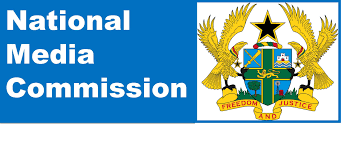Editorial
Decentralisation of student loan scheme way to go

Dear Editor,
It is often said that education is the key to success.
Although there are divided opinions due to various reasons, one can not undermine its importance towards the growth of any country, including Ghana.
Over the years, successive governments have implemented various policies to ensure that every child gets access to quality education at all levels by bearing some of the cost.
We can talk of the Free SHS policy and also the free tertiary education for first year students by the current government.
Also, one way the government supports tertiary students financially is through the student loan scheme where tertiary students apply for loans to support themselves financially and pay when they start working.
It is fair to say that the student loan scheme has been of immense benefit to students who apply and are lucky to have it.
That notwithstanding, a few of my friends I have interacted with have also shared their frustration about the whole application process.
According to them, some students have had to abandon the idea of applying for the loan due to the frustration they encounter while going through the whole application process.
Although I never applied for the loan during my days as a university student, I shared in their pain and frustration.
Tertiary institutions are uniquely positioned to identify ‘needy but brilliant students’ more effectively than any other state institution, and for this reason I am of the view that the student loan scheme should be decentralised, with universities managing the process through a well-constituted board.
Also, the board should be clothed with the responsibility of approving loan requests based on applicants’ demonstrated academic performance and proven financial need.
Such a localised approach, I believe, would make the funds available to the most deserving students promptly and efficiently and also address the bottlenecks associated with the whole loan application process.
Atom,
Sukura
Editorial
NMC must enforceguidelines to protectviewers, especially minors

Dear Editor,
I WRITE to express my growing concern about the increasing display of adult content on some television stations in the country.
These programmes, often aired during hours when children are most likely to be watching, pose a serious threat to their moral development and general well-being.
Television remains one of the strongest influences on young people, and stations have a responsibility to ensure that their content reflects the values we seek to instil in our society.
Unfortunately, some channels appear to prioritise sensationalism and profit over public safety and decency.
Such content not only exposes children to material they are not prepared to process but also undermines parents’ efforts to guide their behaviour.
I call on the National Media Commission (NMC) and other regulatory bodies to intensify monitoring and enforce stricter guidelines to protect viewers, especially minors.
Broadcasters must be reminded of their duty to promote responsible and wholesome programming.
Our airwaves should uplift, educate, and inform — not endanger the moral fabric of the next generation.
Eugene Ampiaw,
Accra
Join our WhatsApp Channel now!
https://whatsapp.com/channel/0029VbBElzjInlqHhl1aTU27
Editorial
Balancing faith,discipline at Wesley Girls SHS
Dear Editor,
I AM writing to share my thoughts on the ongoing issue at Wesley Girls’ Senior High School, which has attracted national attention after the Deputy Attorney General released a statement in court.
The matter is about whether Muslim students are being denied the right to freely practice their religion, and whether they are being compelled to follow practices that go against their faith.
To me, this is not just a legal issue but a question of fairness and respect in our schools.
While the Constitution guarantees every student the right to practice their faith, schools also have traditions and rules that must be respected. As the saying goes, “When you go to Rome, you do what Romans do.” If a teacher is teaching, it is not right for a student to suddenly leave for prayers. That disrupts learning.
Instead, schools should provide a clear time and place for worship, so that students can honour their faith without disturbing academic work. There is time for everything; time to learn, and time to pray.
Wesley Girls SHS can continue to uphold its Methodist heritage while also respecting the rights of Muslim students.
This compromise will protect unity and ensure that our schools remain places of both discipline and inclusion.
Princess Wonovi
Accra
Join our WhatsApp Channel now!
https://whatsapp.com/channel/0029VbBElzjInlqHhl1aTU27






